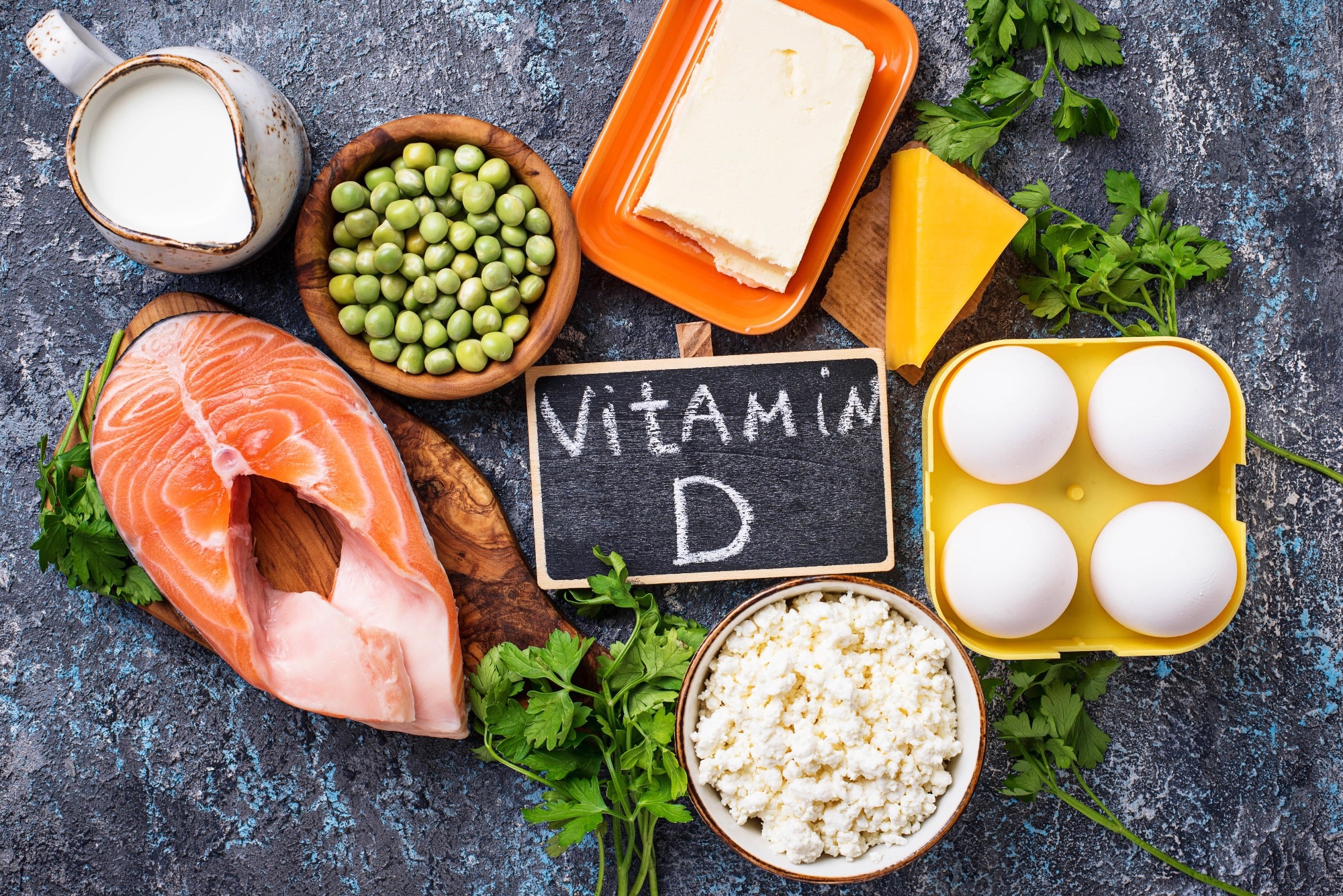Recently, scientists reviewed the available literature to better understand vitamin D's immunomodulatory and antiviral function.
The study explores how vitamin D influences the pediatric respiratory system after acute respiratory tract infections (ARTI), such as severe acute respiratory syndrome coronavirus-2 (SARS-CoV-2), which is the causal agent of the ongoing coronavirus disease 2019 (COVID-19) pandemic. This review is available in Nutrients.
 Study: Immunomodulatory Effects of Vitamin D in Respiratory Tract Infections and COVID-19 in Children. Image Credit: YuliaFurman/Shutterstock.com
Study: Immunomodulatory Effects of Vitamin D in Respiratory Tract Infections and COVID-19 in Children. Image Credit: YuliaFurman/Shutterstock.com
Background
Children often develop ARTI, which accounts for 20% of all pediatric fatalities. There are two subsets of ARTI: upper respiratory tract infections (URTIs) and lower respiratory tract infections (LRTIs).
Most URTIs are associated with viral infection caused by rhinovirus, SARS-associated coronavirus, enterovirus, influenza virus, and respiratory syncytial virus. Bronchiolitis and pneumonia are the two most common LRIs in children.
SARS-CoV-2 infection in children has manifested a wide range of symptoms, i.e., from asymptomatic to severe infection. Although most children with COVID-19 have been asymptomatically infected, a small number of children developed severe forms of multisystem inflammatory syndrome in children (MIS-C).
A very limited amount of evidence has been documented regarding the SARS-CoV-2 disease in the pediatric population worldwide.
Vitamin D is a crucial micronutrient that is associated with immune function. It can stimulate innate immunity, reduce the production of helper T lymphocytes (type 1), and improve the proliferation of type 2 and regulatory T lymphocytes.
Furthermore, vitamin D helps decrease the pro-inflammatory cytokines (e.g., IL1, IL6, IL12, TNFα, and IL17) and interferon γ, and increase IL10 (anti-inflammatory cytokines) via NFkβ metabolic pathway.
About the study
Although several studies have shown that children with vitamin D deficiency are more susceptible to ARTI, the scientific community does not fully accept this observation.
This review focussed on understanding whether there is a link between ARTIs and vitamin D supplementation.
All relevant articles were obtained from PubMed. This review included all types of free articles published in English, such as clinical trials, systematic reviews, and meta-analyses.
The targeted population was children under 19 years of age. This review excluded studies with small sample sizes, i.e., less than 100 participants, and non-peer-reviewed articles.
This systematic review used the Patient, Intervention, Comparison, and Outcome (PICO) framework.
A total of 518 citations were obtained after the initial search; however, 27 studies fulfilled all inclusion criteria and were considered in this review.
Study findings
25(OH)D is the major circulating vitamin D form exhibiting antiviral properties through antimicrobial peptides. Monocytes and macrophages expressing CYP27B1 (1-α hydroxylase) enable the conversion of 25-hydroxycholecalciferol to 1,25-dihydroxycholecalciferol.
Calcitriol is an active vitamin D form that is crucial in limiting pathogenic presence. Previous studies have shown that vitamin D enhances nitric oxide production, which is linked to the antioxidative effect of 25OHD. Vitamin D receptor (VDR) and CYP27B1 have been detected in considerable amounts in cells and tissues.
Most studies indicated a robust association between VD status and the incidence of ARTIs, including COVID-19 infections. These studies revealed that vitamin D levels were inversely related to the severity of COVID-19.
A limited number of studies contradicted this finding and reported no correlation between vitamin D deficiency (VDD) and a higher prevalence of SARS-CoV-2 infection.
In contrast, another study demonstrated VD's prospective protective and preventative function against COVID-19. An elevation in inflammatory markers occurs when vitamin D serum concentrations decrease.
Numerous factors are associated with VD's ability to prevent ARTIs. For instance, 25 hydroxyvitamin D enhances the synthesis of natural antibodies.
In addition, it improves immunity by promoting monocyte differentiation and preventing lymphocyte production. VD also enhances the phagocytic activity of macrophages. Therefore, many studies have indicated that VD intake lowers the risk of severe SARS-CoV-2 infection.
A meta-analysis considered around 4786 children to determine the efficacy of vitamin D supplementation in combination with antibiotics to treat pneumonia. A higher vitamin D concentration lowered the risk of recurring pneumonia.
Another study indicated that 25(OH)D concentration higher than 75.0 nmol/L significantly lowered the risk of acute pneumonia. A survey showed that 1/5 of children hospitalized due to pneumonia were VDD. Babies under three years old diagnosed with pneumonia subjected to 100,000 IU of VD3 almost eliminated the risk of recurrence.
In some cases, young patients with COVID-19 required hospitalization, and vitamin D was measured from this group without a baseline measurement. This has generated conflicting interpretations about causality.
A prior study reported reverse causality with the expression CYP24A1, which increased SARS-CoV-2 infection. Therefore, more research is required to elucidate how VD influences COVID-19.
Conclusions
Although systematic reviews and meta-analyses have indicated that a lower level of 25(OH)D enhances the risk of developing ARTI in children, the experimental findings sometimes contradict this observation.
There has been a growing consensus that serum VD should be maintained above 75 nmol/L to maintain overall health. To avoid VDI in all age groups, dietary VD intake and VD supplements have been recommended.